Hi Everyone,
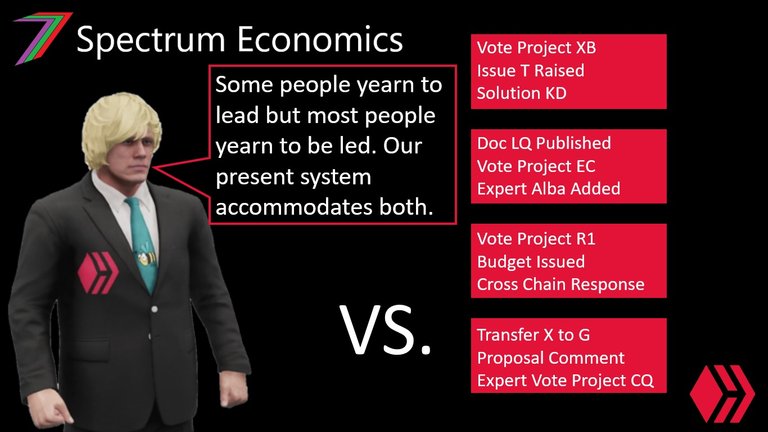
In Part 1, I discussed existing systems of Government. I focused on the two-party representative democracies commonly used by many western countries as well as the changes I believe required for the blockchain to play a substantial role in National and State governance. I stated that elected officials who form Government should play an administrative role instead of key or strategic decision-making roles.
In Part 2, I am discussing how the blockchain can enable efficient and effective decision-making based on consensus. All of the content in this post is completely hypothetical. The ideas presented are being used to provide a feel of how a Blockchain Government might operate.
Measuring success
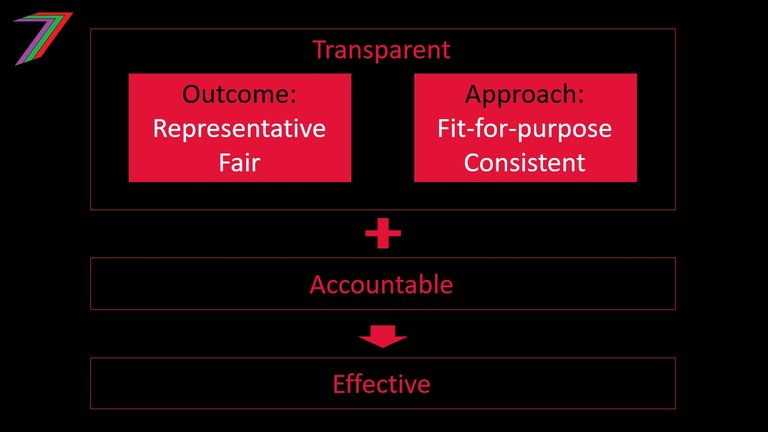
I believe in order for a system of Government to be successful it needs to meet the following criteria.
- Transparent
- Accountable
- Representative
- Fair
- Fit-for-purpose
- Consistent
- Effective
I outline this criteria in detail in my post 'Leadership – Prevent, Solve, or Manage'.
Many existing Governments struggle to meet any of the above criteria. I believe a well designed Blockchain Government could meet all of the criteria. In the conclusion of the post, based on the ideas I present in this post, I briefly summarise how a Blockchain Government could meet all the criteria .
National or State Cryptocurrency
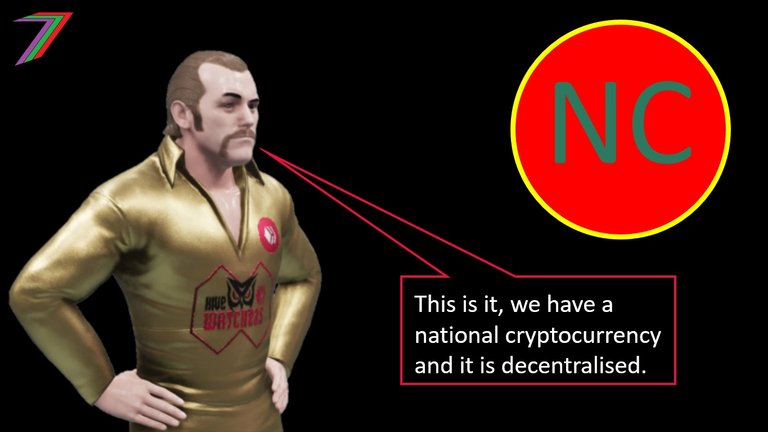
For the blockchain to be effectively incorporated into National or State governance, the country will need to replace the existing Central Bank issued fiat currency with at least one form of cryptocurrency. Cryptocurrency is essential as it can be easily distributed through the blockchain. Attempting to distribute a Central Bank issued fiat digital currency through a blockchain would destroy the main advantages of the blockchain. Decentralisation could not be achieved and the blockchain would lose significant functionality.
The blockchain encourages action through the ability to distribute rewards (i.e. the cryptocurrency). People have incentive to provide valuable input if that input is rewarded. The blockchain creates the opportunity to reward people who contribute to governance. Contributions would be rewarded, through code by consensus based on people’s perceived significance of the contribution. This could not occur without a National or State cryptocurrency.
Financial tool for individuals
The creation of a nationally used cryptocurrency could eliminate the need for banks. People could store their cryptocurrency in their own digital wallets. They would be able to buy anything directly from their wallet. Wallets could be both secure and private. Security could be provided through keys and privacy could be provided through encryption. Loans and investment could be made directly between individuals and groups of individuals through the use of smart contracts.
The need to be decentralised
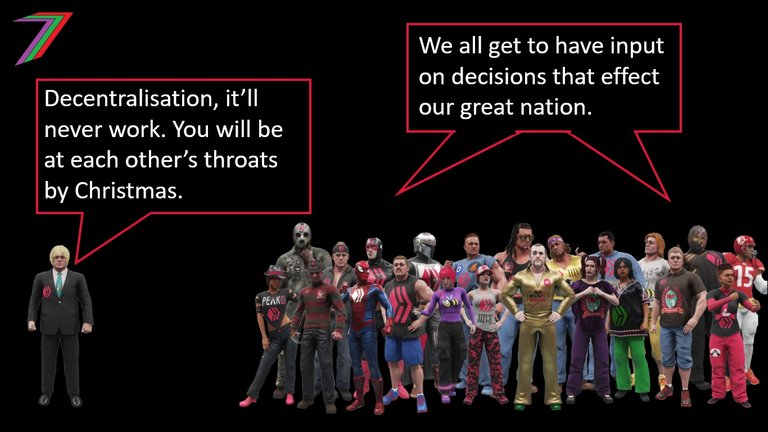
The biggest problem with existing systems is that power sits with just a small group of people. This problem could continue to persist, if the blockchains created are not sufficiently decentralised. In my post 'The Blockchain Economy', I discuss various mechanisms for obtaining consensus for governance. For many blockchains, decentralisation takes time to achieve. For Blockchains used for National or State governance, decentralisation must occur from the very beginning. In my post 'The Blockchain Economy', I gave a few examples of possible mechanisms for achieving decentralisation. For the purpose of this post, I will explain how the previously listed mechanisms could achieve decentralisation of decision-making on a large scale. See list below.
- Proof-of-citizenship or proof-of-residency
- Proof-of-expertise
- Proof-of-accomplishment
- Proof-of-brain (currently used by Hive Blockchain)
Proof-of-citizenship or proof-of-residency
Proof-of-citizenship or proof-of-residency systems would be used for voting in elections. On registering, each person would be assigned an anonymous identifier so that his or her votes could not be tracked. Proof-of-citizenship or proof-of-residency systems could also be used to enable people to actively participate in National or State governance. Once registered, people would able to participate in governance. They would be able to raise issues, back existing issues, add comments, offer their own experience relating to particular issues, and vote on proposed solutions and actions. People should be able to choose if they want to be identified or remain anonymous in regards to this type of input.
Proof-of-expertise
Different people have different skillsets and abilities. Proof-of-expertise can be used to give people with proven expertise greater influence in areas that fall into their realm of expertise. This could be in the form of higher weighted votes for problem identification and offering of solutions. Expert votes could also be aggregated separately from non-expert and public votes. Expert status could be tiered so that those that have advanced further in their field would have greater influence on determining decisions and approaches to desired outcomes. Table 1 contains an example of a summary of the total number of registered experts across various areas. Table 2 contains an example of voting on various projects based on using a weighted vote system.
Table 1: Summary of the number of experts registered in each field
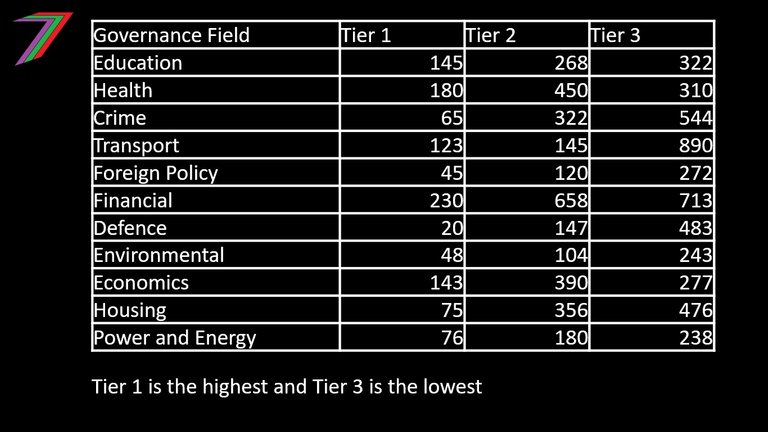
Table 2: Example of Weighted Voting
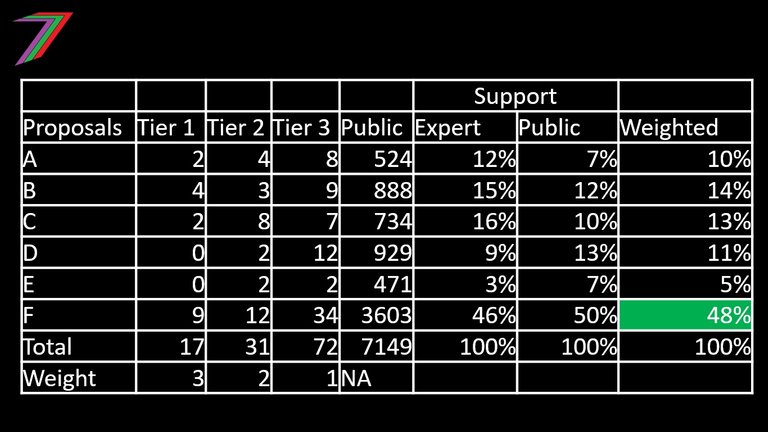
Unlike people voting as just members of the public, experts would need to be identified. This identification is necessary to verify the expert’s level of expertise.
Proof-of-accomplishment
People can be granted expert status based on their contributions to a particular field. We could call this proof-of-accomplishment. To be granted expert status, a person needs to prove they are a genuine expert in their relevant field. They could demonstrate expertise through qualifications and accomplishment. This can be demonstrated by publishing of qualifications, resume, samples of work completed, published articles, and references from other experts on the blockchain. The published materials would be available for all to review. Upon viewing this information, expert status could be granted by votes from existing experts and/or from a public vote. Votes from existing experts would have more weight than public vote.
Proof-of-accomplishment could also be used as a perquisite for people to run for elected office. In Part 1, I described a political system where all candidates are independent (i.e. no parties). A potential flaw in this approach is that anyone could choose to run an election campaign in order to access funds. Proof-of-accomplishment would require candidates to prove they are worthy of candidacy based on their accomplishments. Required accomplishment criteria would be determined and published prior to candidate registration. The criteria would be determined by consensus on the blockchain.
Proof-of-brain
Proof-of-brain is currently used on the Hive Blockchain to reward content. Proof-of-brain can also be used to reward contributions to governance. People will be able to contribute in regards to proposals, comments and additional information on existing proposals, defining of problems, defining of desired outcomes, and possible solutions. The contribution will be rewarded based on the number of votes. These will include votes from the public and experts; an expert vote would produce a higher reward. People voting would also receive a small share of the reward. The rewards would be taken from a rewards pool generated by the increase in the supply of the National or State cryptocurrency.
Mechanisms working together
The above mechanisms are just a few possible examples of how a system of blockchains could create decentralisation of decision-making. I do not believe one approach would be sufficient to achieve both decentralised and quality decision-making. Input from both the public and experts is important to reach decisions that are effective at addressing the needs of the people.
Expert Consensus
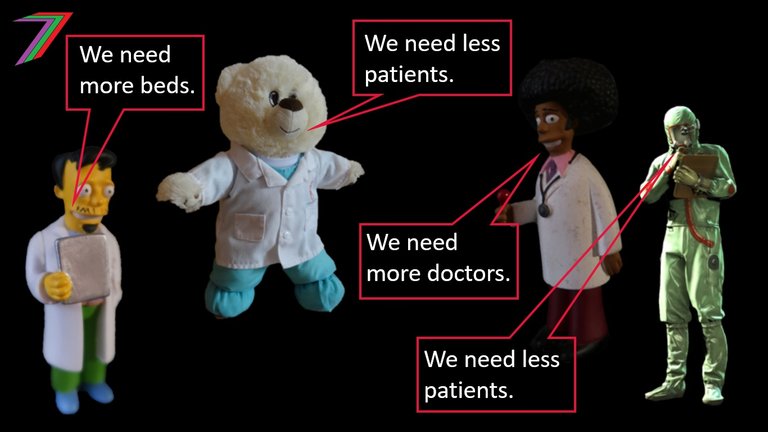
Proof-of-expertise could enable decisions to be reached based on expert consensus. Expert consensus pools the knowledge and opinions of any experts willing to participate. The blockchain enables all their knowledge and opinions to be expressed transparently without fear of censorship. The public will be able to access the range of opinions expressed as well as who expressed them. The blockchain will enable the public to provide feedback regarding raised issues and proposed projects.
Expertise should be defined based on the areas of decision-making a person can influence. For example, people would not be selected as engineering experts or mathematics experts. Instead, their expertise would be aligned with relevant areas in decision-making. Such expert groups could include the following:
- Education
- Health
- Crime
- Transport
- Migration and International Relations
- Financial
- Defence
- Environmental
- Economics
- Housing
- Power and Energy
Elected officials, as described in Part 1, would be able to contribute across various expert groups. Their opinions could be more heavily weighted in regards to defining problems and desired outcomes as they have been elected to represent the views of their electorate and constituency. Opinions of nominated grass roots leaders could also be given greater weight in a similar way to elected officials.
Why would expert consensus be beneficial?
Making decisions using the blockchain through expert consensus can be effective, quick, and representative. Decisions are likely to be more effective as a large number of experts can openly contribute to the decision-making process. Decisions can be made quick as it does not require all experts to agree on particular actions, as decisions would be made based on which decision receives the greatest support within a predetermined timeframe. Decisions are likely to be representative of expert opinion as well as the needs of the public, as everyone will be able to contribute and their feedback will be permanently stored on the blockchain.
Master Blockchain
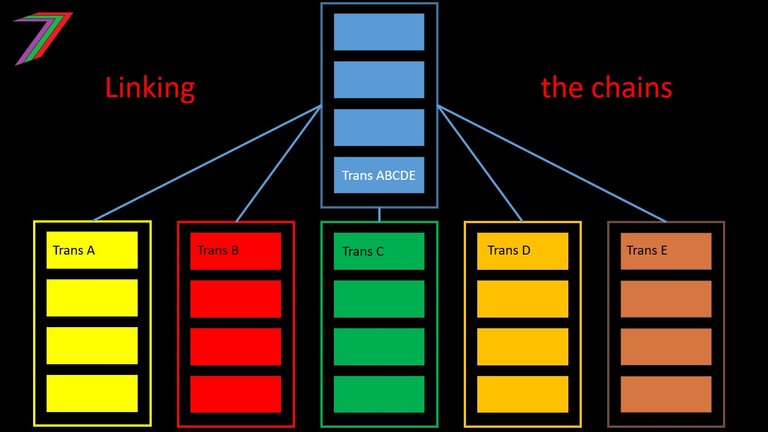
Multiple blockchains working together would be required to ensure the smooth operation of the Blockchain Government. There would need to be a master blockchain linking all the blockchains together. Ideally, all these blockchains would distribute the same cryptocurrency. The budget would determine how many newly created coins and raised revenue would be distributed to each chain. Each blockchain would have code that would determine how these coins are distributed to those who have contributed to the functions of that blockchain once they have been allocated by the master blockchain.
Raising Revenue
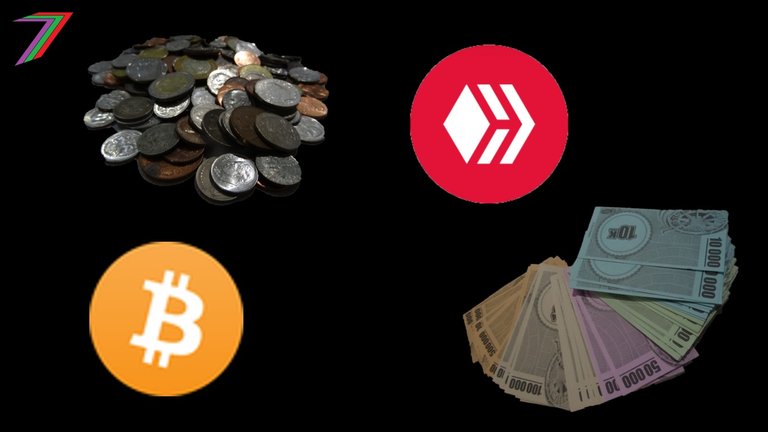
A Blockchain Government would be required to raise revenue to fund the activities and initiatives that it supports. Some of this funding can be obtained from the creation of new money. The creation of new money cannot be excessive or the cryptocurrency will become inflationary (i.e. lose value). Ideally, the increase of money supply should align with the increase in the productivity of the economy. It is likely that increasing the money supply will not be sufficient to support all Government spending. Therefore, taxation can still be expected to exist in some form. I would expect a country with a Blockchain Government to rely heavily on the private sector for provision of most services. Therefore, taxation should be minimal.
User Interfaces
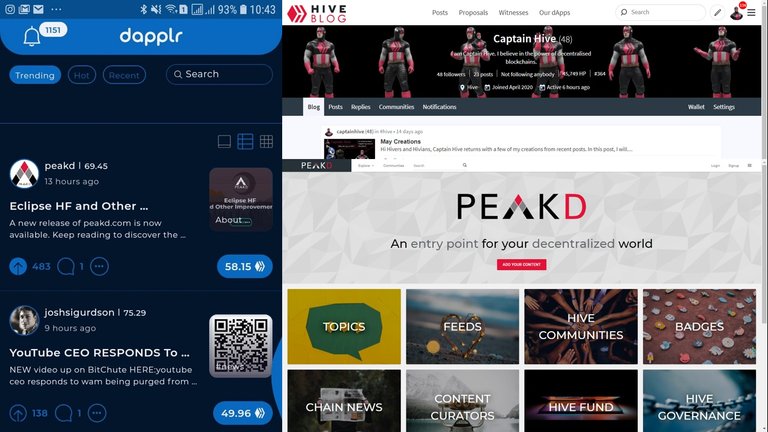
Note: Above user interfaces (Dapplr, Hive Blog, and Peakd) are examples taken from the Hive Blockchain.
So far, what I have described is a possible outline of a very sophisticated system of interlocking blockchains, which would store large volumes of information. Finding and accessing the relevant information directly from the blockchains would be difficult and time consuming. Therefore, user interfaces linking to all the blockchains would be essential for people to navigate the blockchains for information most relevant to them. It is likely that several thousand user interfaces would be necessary. There would be user interfaces for each region, area of expertise, documentation, opinions and comments, elected officials responses, online debates, surveys and statistics, information relevant to multiple areas, and anything else stored on the blockchain. Most of these user interfaces would not need to be planned or determined through the blockchain, people would voluntarily create these user interfaces. These user interfaces could be profitable as they could raise revenue from advertisements or be subscription based.
Separation of problems, outcomes, solutions, and actions
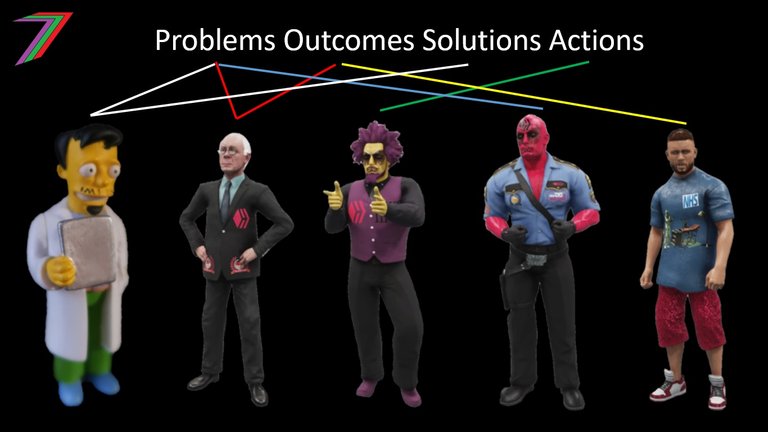
The blockchain creates an opportunity for decisions to be made by consensus. However, as explained early in the post, consensus can be reached in many different ways. Different types of consensus are required for different things. People’s opinion carry different value depending on circumstances and subject matter. For example, an environmentalist knows more about the environment than the average person does. Therefore, the environmentalist should have greater influence in decision-making in matters relating to the environment. There are various aspects of the decision-making process; these can be broken down into problems, outcomes, solutions, actions, etc. The people best suited to identifying problems might not be the same people who are best at determining the solutions nor the same people who are best at putting these solutions into actions.
To improve the quality of decision-making and representation, I suggest problems, outcomes, solutions, and actions are determined through different voting mechanisms. Problems can be identified by anyone but certain groups of people have a more informed perspective. Experts might be better at anticipating future problems and elected officials can collate problems relayed directly to them. Everyone should have an equal input in regards to our desired outcomes. Desired outcomes relate to needs and wants, which does not rely on expert opinion or particular knowledge. A limited number of people have the skills and knowledge to present workable solutions. Experts should have the greatest weight in regards to offering proposals and voting on solutions, as they require the most technical skill and knowledge. The final step involves implementing the proposed solutions. Private companies can publish proposals, which can be judged through a combination of consensus from experts, elected officials, and the public.
Passing of laws
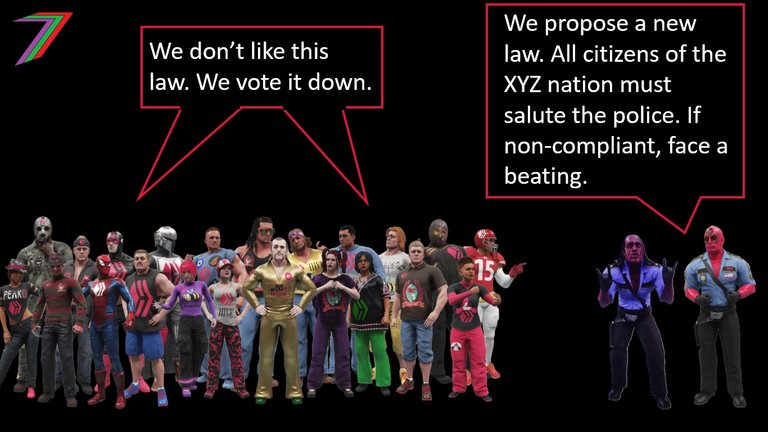
All laws should be published to the blockchain. All laws should be subject to review by the public. Any laws that receive considerable negative feedback should be discussed in detail. All discussions should be published to the blockchain. All the laws highlighted based on significant negative feedback should be voted on by the public. This vote should determine if the law is removed, remains, or modified. New laws can also be proposed. Proposals for new laws can come from law experts as well as the public if backed by significant support. The proposed new laws would be voted on by the public to determine if they become law.
Confidential matters and national security
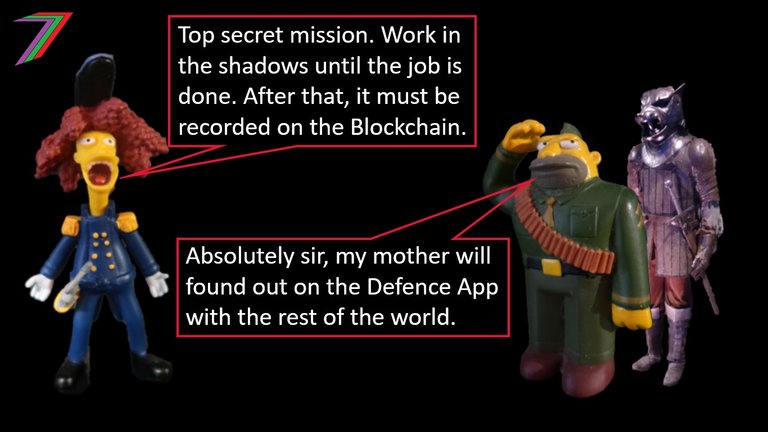
It would be desirable to have as much information as possible on the blockchain. However, certain information will need to remain confidential for purposes of national security. Under these circumstances, information would need to be kept with a few selected individuals. For example, a special national security team. The selection of the people in this team can still be done through the blockchain through consensus. Confidential information should be given a duration of confidentiality. Once that time has expired, the information should be published to the blockchain or have encription removed so that it is available to all; this is important as people entrusted with confidential information need to be held to account.
International relations and dealing with other countries and states
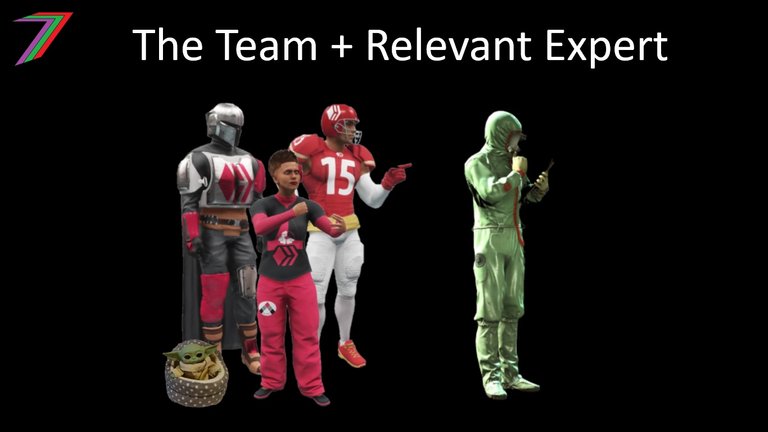
I have described a Blockchain Government, which has no overall leaders. However, most other countries will not operate in the same way. Other countries would expect to meet representatives in person. This problem could also be solved using the blockchain. Elected officials could vote on the creation of an international team. This team could consist of elected officials and relevant experts (chosen experts would depend on the nature of the international talks). All information exchanged during the talks should be documented and published to the blockchain. Confidential information should be published once the duration of confidentiality expires.
Activities off-chain
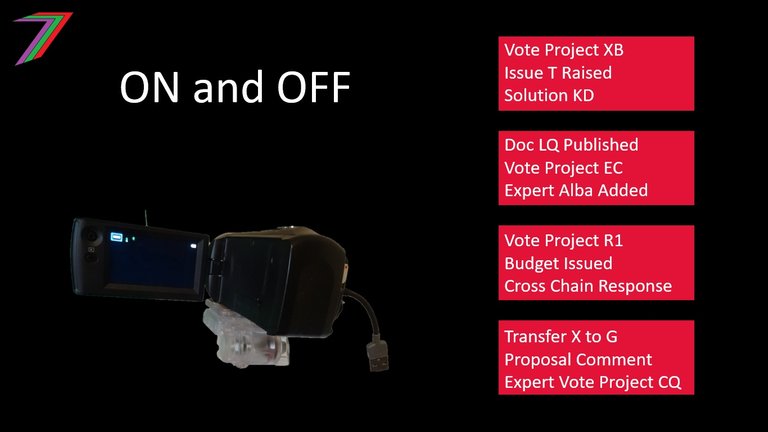
Not everything can be done on-chain. The blockchain could store anything that can be expressed in written form. This could be expanded to include diagrams, maps and basic images. Video and audio are unlikely to be able to be stored on the blockchain. However, transcripts from videos and audio can be published on the blockchain. Physical work and activities would be done off-chain but progress reports of these activities can be published on the blockchain. All information stored on the blockchain should also be downloadable so that people can share hardcopy versions or be able to store information from the blockchain on offline computers or databases.
Conclusion
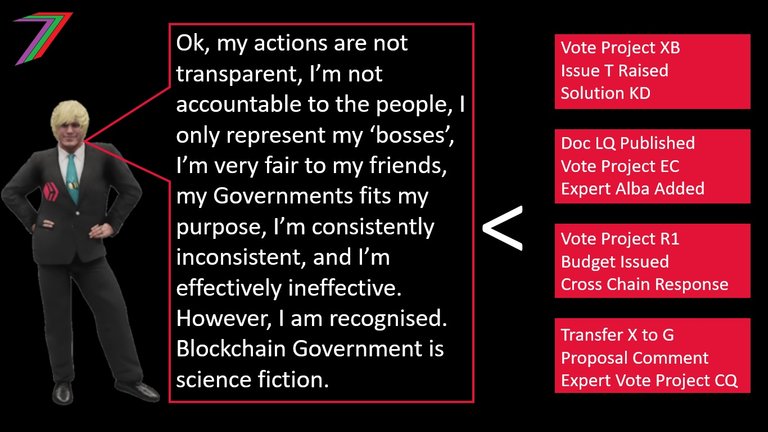
I believe the blockchain offers amazing potential in many different areas. I believe one of those areas is National and State governance. I believe this to be the case for several reasons; such reasons include:
- A blockchain can be decentralised.
o Decentralisation eliminates the need for trust.
o Decentralisation removes power from individuals and small groups.
o Decentralisation can prevent censorship.
o Decentralisation can ensure transparency and accountability of all actors.
o Decentralisation can harness the collective efforts of the crowd.
o Decentralisation promotes greater collaboration between open source projects. - A blockchain can automate rewards based on actions.
- A blockchain can be used to align rewards with favourable actions.
- A blockchain offers a reliable tool to reach consensus from a large audience.
- A blockchain enables the development of applications, which can publish to the blockchain as well as extract targeted information.
I also believe a Blockchain Government would better meet the criteria I set out in my post 'Leadership – Prevent, Solve, or Manage'. Below, I briefly summarise how the Blockchain Government could meet each criterion.
- Transparency can be achieved as actions are stored on the blockchain.
- Accountability can be achieved through regular votes on initiatives and projects.
- Representation can be achieved as voting systems can incorporate opinions from people with diverse skillsets, abilities, experiences, and backgrounds.
- Fairness can be achieved through voting systems that can be weighted in favour of people who are must affected by an initiative.
- Blockchain Government can include many different blockchains which are fit-for-purpose.
- Consistency can be achieved through code, which can only be changed through consensus.
- Effectiveness can be achieved through the pooling of knowledge from many people.
In this two part series, I have described a hypothetical outline of a possible Blockchain Government. My intention is demonstrate that such a system of governance could be possible and that it could be a vast improvement over our existing two-party representative democracy. I discuss the two-party political system and representative democracy in my posts 'Raise your hand if you live in a Democracy' and 'First-Past-The-Post Vs Preferential Voting Systems'. These posts highlight many flaws with the existing systems in both operation and formation.
More posts
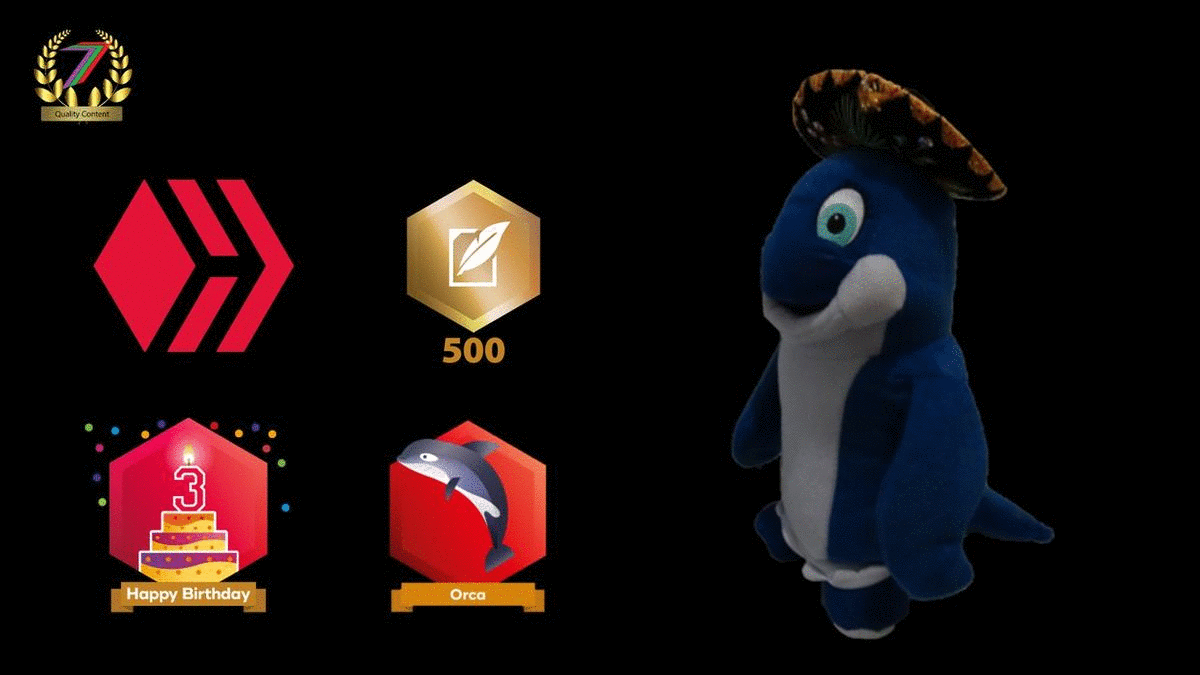
If you want to read any of my other posts, you can click on the links below. These links will lead you to posts containing my collection of works. These 'Collection of Works' posts have been updated to contain links to the Hive versions of my posts.
My New CBA Udemy Course
The course contains over 10 hours of video, over 60 downloadable resources, over 40 multiple-choice questions, 2 sample case studies, 1 practice CBA, life time access and a certificate on completion. The course is priced at the Tier 1 price of £20. I believe it is frequently available at half-price.
Future of Social Media






What an excellent ,detailed and well thought out post; you have outlined really well the advantages of a blockchain government. That's exactly what all countries on earth should aspire to. However, am sure most politicians would want to maintain the status quo, so they keep lying to us, not being accountable and directly benefiting themselves at the expense of the populace.
It would be wonderful to see a decentralized blockchain government in action, it will take time but eventually we may see it. In Kenya for example they are already incorporating blockchain technology in the lands registry for transparency and accuracy of all land transactions. The judiciary are trying to implement a blockchain too where they want to put all ongoing, ruled and settled cases. So that the information can be accessed at different tiers maybe protected with passwords.
We are taking baby steps but blockchain government is going to eventually come true in some shape or form. Thank you for sharing and I wish you a productive new week ahead :}
There would be a huge amount of resistance from current politicians. A Blockchain Government would greatly reduce their power. The push for change must come directly from the people. This is also going to be very challenging as most people are not aware of the massive potential the blockchain has to offer. Mainstream media and social media play a role in restricting this information as they support the existing system. Social media blockchains like Hive can play an important role in informing people. I feel we have a long uphill battle ahead of us.
Very interesting thought process. Thanks for sharing. It would be interesting if I live to see this in practice.
It would be amazing if this can become reality but I think cryptocurrency needs to become widely accepted and adopted first.
For this post my head was full of ideas. The problem was trying to pull them together for something that resembled a cohesive post. Many of my ideas popped into my head during a walk by the lake with my dog. I quickly jotted them down when I got home. Below is the list of my thought process.